
Publisher:
Bonnie King
CONTACT:
Newsroom@Salem-news.com
Advertising:
Adsales@Salem-news.com

~Truth~
~Justice~
~Peace~
TJP
Dec-05-2011 02:31


 TweetFollow @OregonNews
TweetFollow @OregonNews
Marine Medal of Honor Recipient, Nation's Best- Faces Retaliation as Whistleblower
Tim King Salem-News.comThe Medal of Honor reflects the gratitude of the entire nation. Here's the rest of the story...
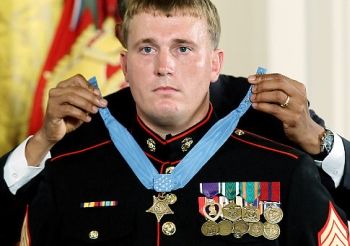 Marine Sgt Dakota Meyer was awarded the Medal of Honor for his acts of bravery in Afghanistan. White House photo. |
(SALEM) - U.S. Marines awarded the Medal of Honor for gallantry on the battlefield are, in American tradition, the quintessential hero; typically they are the most honored citizens in existence.
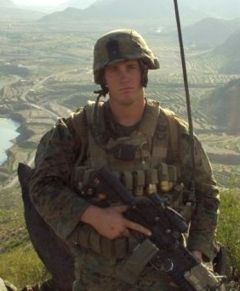 Dakota Meyer- Kunar Province |
But now, instead of being honored, Dakota Meyer is experiencing retaliation for having blown the whistle on a former employer based in England, military defense contractor BAE Systems, that he believes was trying to sell military hardware to Pakistan that could in turn be used against U.S. forces.
His lifestyle is being taken apart; his character is under assault for alleged 'drinking problems' and for being 'mentally unstable'. This, from a British military contractor that the former Marine took a post-service job with. Meyer contends that BAE Systems, was selling high powered sniper scopes to Pakistan. This was Meyer's second civilian job upon being discharged.
After reading about what he did in Afghanistan, I can hardly believe that this native of the state of Kentucky, USA, is alive.
Courage Under Extreme Fire
His story is so epic that I could not read the account of his battle exploits aloud to my wife, I choked up. It is one of those kind of stories, and it comes at such a painful time in American history.
Staff Sgt Juan J. Rodriguez-Chavez
Assigned to the security element while other members of his team led two platoons of Afghan National Security Forces into Ganjgal Village for a pre-dawn meeting with village elders. Staff Sergeant Rodriguez-Chavez heard over the radio that the dismounted patrol was ambushed by roughly fifty enemy fighters in fortified positions.
With four members of his team in immediate danger of being surrounded, he drove a gun-truck, with one other Marine as his gunner, forward into the kill zone of a well prepared ambush. With only the machine gun fires of his gunner to suppress the enemy, he ignored heavy enemy fires and drove the vehicle into the kill zone three times to cover the withdrawal of the combined force and evacuate two dozen members of the Afghan National Security Forces. With complete disregard for his own personal safety, he made a fourth trip into the deepest point of the kill zone in another gun-truck with three other U.S. personnel to recover the bodies of the fallen team members. He positioned his vehicle to shield the U.S. members from the intense enemy fire as they dismounted to recover their bodies. By his decisive actions, bold initiative, and selfless dedication to duty, Staff Sergeant Rodriguez-Chavez reflected great credit upon himself and the Marine Corps and upheld the highest traditions of the United States Naval Service. Action Date: September 8, 2009 Service: Marine Corps Rank: Staff Sergeant Source: Juan J. Rodriguez-Chavez - Military times Hall of Valor |
There is adherence to major positive stereotypes, and yet this man from Kentucky shatters negative molds at the same time. He directly disobeyed lawful orders in order to put his life at risk and save what turned out to be, the lives of 36 Americans.
He didn't just do it for his close personal friends, because every human being fighting the Taliban that day was his brother. And let's face it, the Taliban are people who back insanely barbaric treatment of women; in their distortion of Islam and Qur'an, they fight to deny girls the right to attend school, and routinely conduct human rights abuse. Taliban are not an insurgency worth supporting by anyone.
Some of the 'friends' Meyer went in to rescue with Staff Sgt. Juan Rodriguez-Chavez, were men of senior capacity and varied military backgrounds. One of those who didn't make it, was a lieutenant. One was a Marine gunnery sergeant, and one was a Marine staff sergeant. One was a Navy Corpsman, though 'Marine' applies equally to him; and one was a Sergeant first-class in the U.S. Army. Inner-service rivalry means exactly jack squat to Americans when the heat is on.
And in spite of the grief that the losses of these men inevitably brings, 36 others came home because of Dakota Meyer's actions, and let's not forget to mention the importance of Juan Chavez, the Marine who drove the mission to save those 36 human lives. In an age and time when white Americans still regard Hispanic people with bigotry and prejudice, Chavez defines the problem with their archaic modes of thinking. This Marine was born in Mexico.
The story that led to Meyer receiving the Medal of Honor is one of human co-dependence and it exemplifies the regard Americans have for their brother Muslim Afghan soldiers. It is sickening to hear American civilians and politicians attack people for their Muslim faith; if they had any idea how close our warriors are to theirs, the view would be different. Or would it? Perhaps I should not draw such conclusion, offering so much credit.
Dakota Meyer represents the great American value more than anyone I have ever heard of; his exploits in combat are incredible, unbelievable yet terribly true. It truly might be the most inspiring story I have ever heard.
As much as anything else, it is a story of racial and religious equality, the type of thing America is always supposed to represent. The men on this day, and let's bear in mind that Meyer accomplished what he did because of the driving skills of Staff Sgt. Juan Rodriguez-Chavez, who is now a Gunnery Sergeant, survived because this team didn't play favorites.
They rescued the Afghan soldiers, under attack and pinned down on three sides first, before reaching any Americans. While the order of rescue was probably all logistics-based, they didn't miss anyone, and that took several death-defying trips into what was described as the hottest combat zone many had ever seen. (The full account as read by President Barack Obama is included below). Only then were Sgt Meyer and Staff Sgt Chavez able to reach the Americans. The fact that the number of dead did not rise above four after such a deadly and obviously well-planned attack, might be some type of record.
All of this in Kunar province, which I can tell you personally is a hairy place, right on the border with Pakistan; a Taliban and anti-Coalition hot spot.
The Character Assault
Mental instability is not anything visible from the outside or from the record, and the Brits are in self-defence mode because they are in over their heads, clawing at anything they can to preserve their lucrative contracts with the American military industrial complex- at the expense of an amazing American hero.
The term military industrial complex itself, was coined at least in essence, by another Marine Medal of Honor recipient, Smedley Butler, who was a real pain in the side of what we today call the 'one percent'- meaning the richest of rich Americans.
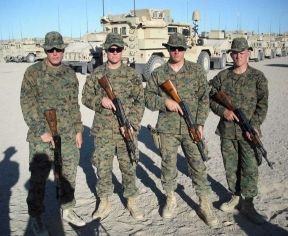 Dakota Meyer, second from right, poses for a |
Ausgar Technologies

ABC News reports after Dakota Meyer was discharged from active duty with the Marines in May 2010, he worked at Ausgar Technologies, which is a veteran owned service-disabled small business in California. This is where Meyer worked until April 2011, just prior to taking a position with BAE Systems. It seems logical to conclude that his supervisor at Ausgar, a retired military naval officer name Tom Grant, would know a thing or two about Meyer.
Grant told ABC News that, "He exhibited a maturity for his age and an insightful capability to get the job done and provide recommendations to improve on what we are doing. I was very impressed while he was working for us. He was an outstanding employee."
When asked about the allegations of mental instability and a drinking problem, Grant said, "While Meyer was working for me, I never saw evidence of either of those issues."
BAE Systems
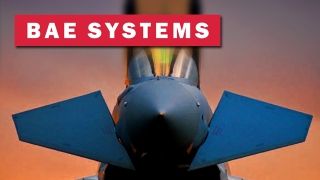
Meyer says he learned while working at BAE Systems, that the company was attempting to sell advanced thermal optic scopes to the Pakistani military.
"We are taking the best gear, the best technology on the market to date and giving it to guys known to stab us in the back," Meyer said.
His chilling words, "These are the same people killing our guys," were sent to BAE Systems manager Bobby McCreight, a former co-worker, according to a lawsuit filed last week.
Meyer, who is now 23-years old, says he is having trouble finding work and he blames this difficulty on the allegations from BAE Systems, which without question has the ability to wield large political influence. Their unfounded and disputed allegation of this Medal of Honor recipient having a 'drinking problem' and being 'mentally unstable' utilize terminology that is damaging to the character of Meyer, by all appearance.
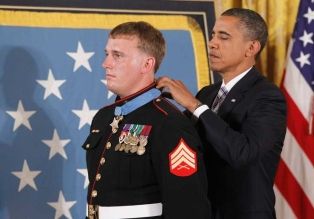 Pres. Barack Obama awards the Medal of Honor |
I don't know who would have a better idea of what negative ramifications may exist for the deal with Pakistan, than a person exactly like Dakota Meyer, and others who spent time in this region. Moreover, his role in the 3nd Battalion 3rd Marines, was as a Scout Sniper.
In an article carried by FOX News, 'In Defense of Dakota Meyer - an American Hero' a retired Marine Lieutenant Colonel named Bill Conway put it like this:
"For his honesty Meyer suddenly became something of a pariah, often berated, belittled, and ultimately taunted by his immediate superior about his pending Medal of Honor award."
Conway relates the problems Meyer has encountered while seeking new employmen- since leaving BAE Systems.
"In taking a stand against giving technology to those who might use it against us, Mr. Meyer is again demonstrating the core values which he exhibited in earning the Medal of Honor – care, concern, and devotion for the lives of his fellow Americans on the battlefield."
Pakistan
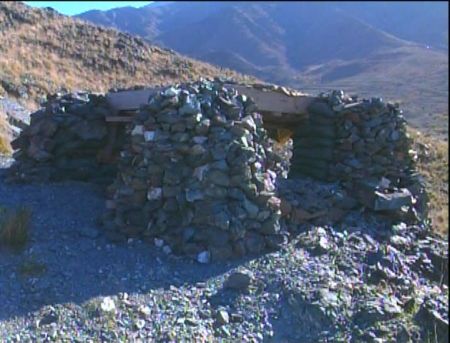 Gun emplacement on a hillside in Kunar province, that Afghan and U.S. |
Let's re familiarize ourselves with Pakistan for a moment; we know that relations are at a standstill due to the recent U.S. Army helicopter attack on two Pakistani military outposts, 23 died and more than half that number were injured.
In the beginning, Pakistan was an ally with the Bush-led United States war on the Taliban but it wasn't necessarily his choice, as Musharraf claims in his 2006 memoirs he was given...
" ...an ultimatum after military threats 'to go back to the Stone Age' by U.S. President George W. Bush through Deputy Secretary of State Richard Armitage and Secretary of State Colin Powell... Bush and Armitage denied it."
That isn't exactly the same as having the British or Ugandans enlist in the 'Coalition'- and it leaves room for all types of problems, and just when Pakistan looked like it had real political hope, in the persona of Benazir Bhutto, she was blasted to death by a bomb. Wikipedia explains that in February 2011, a Pakistani court issued an arrest warrant for him because of his alleged involvement in the assassination of Benazir Bhutto. As of June 2011, he lives in self-exile in London.
So this is the country that Meyer finds suspicious, and I know from spending time in the region bordering the Northwest Frontier, that Pakistan is the Cambodia of the war in Afghanistan- meaning the enemy moves around and launches attacks, yet frequently remains off Afghan soil. What happened to the Pakistani soldiers recently is terrible, it is all the spillover a war that should probably never have been launched because as history teaches us, this is an extremely difficult region to conduct warfare, even in an age of technology, which both sides possess, even in this rugged place.
Honors from an American President
I think the account offered by U.S. Pres. Obama is one I will always remember. It is both lighthearted and sincere. I am including the speech and of course the video, of this memorable ceremony where a Medal of Honor was awarded to Sgt Dakota Meyer, in the honor of Lt. Michael Johnson- USMC, Gunnery Sgt Edwin Johnson- USMC, Staff Sgt. Aaron Kenefick- USMC, Hospitalman Third Class James Layton- USN. And a U.S. soldier wounded in that battle who never recovered -- Sgt. 1st Class Kenneth Westbrook.
Remarks by the President Awarding the Medal of Honor to Sergeant Dakota Meyer
East Room
2:50 P.M. EDT
THE PRESIDENT: Thank you, everybody. Please be seated. Thank you, Chaplain Kibben. Good afternoon, everyone. And on behalf of Michelle and myself, welcome to the White House.
It’s been said that “where there is a brave man, in the thickest of the fight, there is the post of honor.” Today, we pay tribute to an American who placed himself in the thick of the fight -- again and again and again. In so doing, he has earned our nation’s highest military decoration, the Medal of Honor. And we are extraordinarily proud of Sergeant Dakota Meyer. (Applause.)
I would point out something else -- of all the Medal of Honor recipients in recent decades, Dakota is also one of the youngest. He’s 23 years old. And he performed the extraordinary actions for which he is being recognized today when he was just 21 years old.
Despite all this, I have to say Dakota is one of the most down-to-Earth guys that you will ever meet. In fact, when my staff first tried to arrange the phone call so I could tell him that I’d approved this medal, Dakota was at work, at his new civilian job, on a construction site. He felt he couldn’t take the call right then, because he said, “If I don’t work, I don’t get paid.” (Laughter.) So we arranged to make sure he got the call during his lunch break. (Laughter.) I told him the news, and then he went right back to work. (Laughter.) That’s the kind of guy he is. He also asked to have a beer with me, which we were able to execute yesterday.
Dakota is the kind of guy who gets the job done. And I do appreciate, Dakota, you taking my call. (Laughter.) The Medal of Honor reflects the gratitude of the entire nation. So we’re joined here by members of Congress, including somebody from your home state, the Republican leader of the Senate, Mitch McConnell. We are joined here by leaders from across my administration, including Secretary of Veterans Affairs Ric Shinseki and Navy Secretary Ray Mabus, and leaders from across our Armed Forces, including the Commandant of the Marine Corps General James Amos.
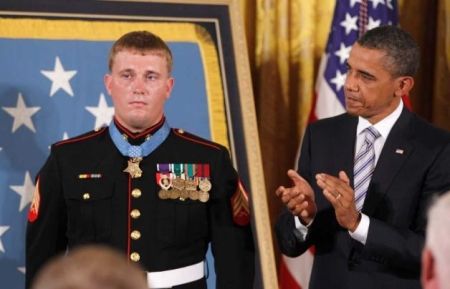 |
We’re honored to welcome Dakota’s father, Mike, who’s here; his extraordinary grandparents; and more than 120 of Dakota’s family and friends, many from his home state of Kentucky. I want to welcome Dakota’s comrades from the Marine Embedded Training Team 2-8, and we are humbled by the presence of the members of the Medal of Honor Society.
Dakota, I realize the past two years have not been easy for you, retelling the story of that day and standing here today. You’re a very modest young man. But, as you’ve said, you do it for a simple reason -- retelling the story -- because it helps you to honor those who didn’t come home, and to remind your fellow Americans that our men and women in uniform are over there fighting every single day.
So that’s how we’ll do this today. It’s fitting that we do so this week, having just marked the 10th anniversary of the attacks that took our nation to war. Because in Sergeant Dakota Meyer, we see the best of a generation that has served with distinction through a decade of war.
Let me tell the story. I want you to imagine it’s September 8, 2009, just before dawn. A patrol of Afghan forces and their American trainers is on foot, making their way up a narrow valley, heading into a village to meet with elders. And suddenly, all over the village, the lights go out. And that’s when it happens. About a mile away, Dakota, who was then a corporal, and Staff Sergeant Juan Rodriguez-Chavez, could hear the ambush over the radio. It was as if the whole valley was exploding. Taliban fighters were unleashing a firestorm from the hills, from the stone houses, even from the local school.
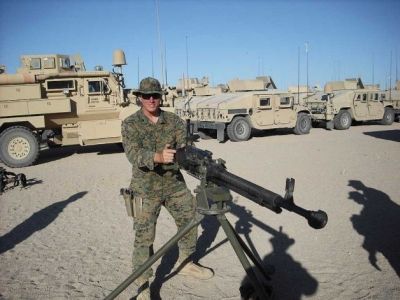 |
And soon, the patrol was pinned down, taking ferocious fire from three sides. Men were being wounded and killed, and four Americans -- Dakota’s friends -- were surrounded. Four times, Dakota and Juan asked permission to go in; four times they were denied. It was, they were told, too dangerous. But one of the teachers in his high school once said, “When you tell Dakota he can’t do something, he’s is going to do it.” (Laughter.) And as Dakota said of his trapped teammates, “Those were my brothers, and I couldn’t just sit back and watch.”
The story of what Dakota did next will be told for generations. He told Juan they were going in. Juan jumped into a Humvee and took the wheel; Dakota climbed into the turret and manned the gun. They were defying orders, but they were doing what they thought was right. So they drove straight into a killing zone, Dakota’s upper body and head exposed to a blizzard of fire from AK-47s and machine guns, from mortars and rocket-propelled grenades.
Coming upon wounded Afghan soldiers, Dakota jumped out and loaded each of the wounded into the Humvee, each time exposing himself to all that enemy fire. They turned around and drove those wounded back to safety. Those who were there called it the most intense combat they’d ever seen. Dakota and Juan would have been forgiven for not going back in. But as Dakota says, you don’t leave anyone behind.
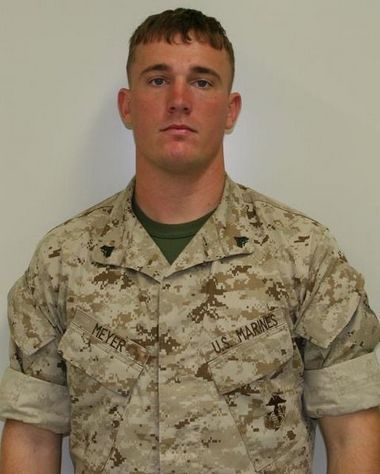 |
For a second time, they went back -- back into the inferno; Juan at the wheel, swerving to avoid the explosions all around them; Dakota up in the turret -- when one gun jammed, grabbing another, going through gun after gun. Again they came across wounded Afghans. Again Dakota jumped out, loaded them up and brought them back to safety.
For a third time, they went back -- insurgents running right up to the Humvee, Dakota fighting them off. Up ahead, a group of Americans, some wounded, were desperately trying to escape the bullets raining down. Juan wedged the Humvee right into the line of fire, using the vehicle as a shield. With Dakota on the guns, they helped those Americans back to safety as well.
For a fourth time, they went back. Dakota was now wounded in the arm. Their vehicle was riddled with bullets and shrapnel. Dakota later confessed, “I didn’t think I was going to die. I knew I was.” But still they pushed on, finding the wounded, delivering them to safety.
And then, for a fifth time, they went back -- into the fury of that village, under fire that seemed to come from every window, every doorway, every alley. And when they finally got to those trapped Americans, Dakota jumped out. And he ran toward them. Drawing all those enemy guns on himself. Bullets kicking up the dirt all around him. He kept going until he came upon those four Americans, laying where they fell, together as one team.
Dakota and the others who had joined him knelt down, picked up their comrades and -- through all those bullets, all the smoke, all the chaos -- carried them out, one by one. Because, as Dakota says, “That’s what you do for a brother.”
Dakota says he’ll accept this medal in their name. So today, we remember the husband who loved the outdoors --Lieutenant Michael Johnson. The husband and father they called “Gunny J” -- Gunnery Sergeant Edwin Johnson. The determined Marine who fought to get on that team -- Staff Sergeant Aaron Kenefick. The medic who gave his life tending to his teammates -- Hospitalman Third Class James Layton. And a soldier wounded in that battle who never recovered -- Sergeant First Class Kenneth Westbrook.
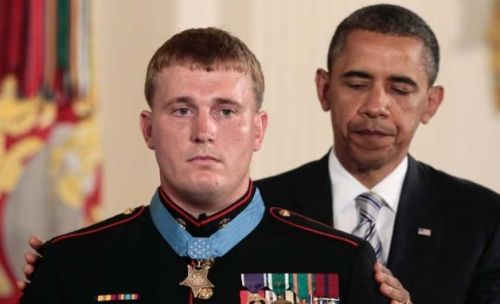
Dakota, I know that you’ve grappled with the grief of that day; that you’ve said your efforts were somehow a “failure” because your teammates didn’t come home. But as your Commander-in-Chief, and on behalf of everyone here today and all Americans, I want you to know it’s quite the opposite. You did your duty, above and beyond, and you kept the faith with the highest traditions of the Marine Corps that you love.
Because of your Honor, 36 men are alive today. Because of your Courage, four fallen American heroes came home, and -- in the words of James Layton’s mom -- they could lay their sons to rest with dignity. Because of your Commitment -- in the thick of the fight, hour after hour -- a former Marine who read about your story said that you showed how “in the most desperate, final hours…our brothers and God will not forsake us.” And because of your humble example, our kids -- especially back in Columbia, Kentucky, in small towns all across America -- they’ll know that no matter who you are or where you come from, you can do great things as a citizen and as a member of the American family.
Therein lies the greatest lesson of that day in the valley, and the truth that our men and women in uniform live out every day. “I was part of something bigger,” Dakota has said, part of a team “that worked together, lifting each other up and working toward a common goal. Every member of our team was as important as the other.” So in keeping with Dakota’s wishes for this day, I want to conclude by asking now-Gunnery Sergeant Rodriguez-Chavez and all those who served with Dakota -- the Marines, Army, Navy -- to stand and accept thanks of a grateful nation. (Applause.)
Every member of our team is as important as the other. That’s a lesson that we all have to remember -- as citizens, and as a nation -- as we meet the tests of our time, here at home and around the world.
To our Marines, to all our men and women in uniform, to our fellow Americans, let us always be faithful. And as we prepare for the reading of the citation, let me say, God bless you, Dakota. God bless our Marines and all who serve. And God bless the United States of America. Semper Fi. (Applause.)
MILITARY AIDE: The President of the United States, in the name of the Congress, takes pleasure in presenting the Medal of Honor to Corporal Dakota L. Meyer, United States Marine Corps, for conspicuous gallantry and intrepidity at the risk of his life above and beyond the call of duty, while serving with Marine Embedded Training Team 2-8, Regional Corps Advisory Command 3-7, in Kunar Province, Afghanistan, on 8 September 2009.
Corporal Meyer maintained security at a patrol rally point, while other members of his team moved on foot with two platoons of Afghan National Army and border police into the village of Ganjgal for a pre-dawn meeting with village elders. Moving into the village, the patrol was ambushed by more than 50 enemy fighters firing rocket-propelled grenades, mortars, machine guns from four to five positions on the slopes above. Hearing over the radio that four U.S. team members were cut off, Corporal Meyer seized the initiative.
With a fellow Marine driving, Corporal Meyer took the exposed gunner’s position in a gun truck as they drove down the steeply terraced terrain in a daring attempt to disrupt the enemy attack and locate the trapped U.S. team. Disregarding intense enemy fire now concentrated on their lone vehicle, Corporal Meyer killed a number of enemy fighters with the mounted machine guns and his rifle -- some at near point-blank range -- as he and his driver made three solo trips into the ambush area.
During the first two trips, he and his driver evacuated two dozen Afghan soldiers, many of whom were wounded. When one machine gun became inoperable he directed the return to the rally point to switch to another gun truck for a third trip into the ambush area, where his accurate fire directly supported the remaining U.S. personnel and Afghan soldiers fighting their way out of the ambush.
Despite a shrapnel wound to his arm, Corporal Meyer made two more trips into the ambush area in a third gun truck, accompanied by four other Afghan vehicles, to recover more wounded Afghan soldiers and search for the missing U.S. team members.
Still under heavy enemy fire, he dismounted the vehicle on the fifth trip and moved on foot to locate and recover the bodies of his team members. Corporal Meyer’s daring initiative and bold fighting spirit throughout the six-hour battle significantly disrupted the enemy’s attack and inspired the members of the command force to fight on. His unwavering courage and steadfast devotion to his U.S. and Afghan comrades, in the face of almost certain death, reflect a great credit upon himself and upheld the highest traditions of the Marine Corps and the United States Naval Service.
(The Medal is presented.) (Applause.)
CHAPLAIN KIBBEN: Let us close in prayer: God, may this ceremony serve as a reminder of the responsibility that comes with receiving the grace gift of freedom. And as we depart this hallowed hall and return to our daily lives, we pray that you would ennoble and enable us, that when called up we would recall the resolute fearlessness of Sergeant Dakota Meyer and all those who wear the stars of valor, and live up to our responsibilities to bring honor to You and to this country.
It is in Your Holy name we pray. Amen.
THE PRESIDENT: Thank you all for joining us here today. We are grateful for Dakota. We are grateful for all our men and women in uniform. And I hope that all of you have not only been inspired by this ceremony, but also will enjoy the hospitality of the White House. I hear the food is pretty good. (Laughter.)
Thank you very much, everybody. God bless you. (Applause.)
Comparing what this young man did, to the awkward claims made by BAE Systems, is truly an exercise in contrast achievement.
Few people in all of history will ever prove who they are to the world in a stronger or more measurable way, than these two men: Meyer and Chavez. Their accomplishments that day in the Kunar mountains; against well armed foes, also brave and dedicated, speak volumes about how the United States of America, in spite of its faults, still has the ability to instill in the actions of individuals the highest ideals ever known to mankind.
Semper fi
Sources:
- Wikipedia page on Dakota Meyer
- America's newest hero, Sgt. Dakota Meyer: How he rescued 36 guys under fire - LA Times Blog
- The Ameican Presidency Project - UC Santa Barbara
- Marine Who Received Medal of Honor Fights Allegations He is Mentally Unstable - ABC News
- Wikipedia page on Pervez Musharraf
- Medal of Honor News
- Remarks by the President Awarding the Medal of Honor to Sergeant Dakota Meyer - The White House
- Opinion - In Defense of Dakota Meyer -- An American Hero By USMC Lt. Col. Bill Cowan (ret.) - FOX News
- Juan J. Rodriguez-Chavez - Military times Hall of Valor
- BAF Engineering News Releases
Articles for December 4, 2011 | Articles for December 5, 2011 | Articles for December 6, 2011

Quick Links
DINING
Willamette UniversityGoudy Commons Cafe
Dine on the Queen
Willamette Queen Sternwheeler
MUST SEE SALEM
Oregon Capitol ToursCapitol History Gateway
Willamette River Ride
Willamette Queen Sternwheeler
Historic Home Tours:
Deepwood Museum
The Bush House
Gaiety Hollow Garden
AUCTIONS - APPRAISALS
Auction Masters & AppraisalsCONSTRUCTION SERVICES
Roofing and ContractingSheridan, Ore.
ONLINE SHOPPING
Special Occasion DressesAdvertise with Salem-News
Contact:AdSales@Salem-News.com

Salem-News.com:
googlec507860f6901db00.html

Terms of Service | Privacy Policy
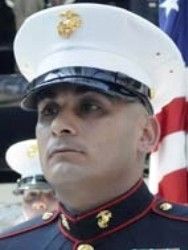 The President of the United States of America takes pleasure in presenting the Navy Cross to Staff Sergeant Juan J. Rodriguez-Chavez, United States Marine Corps, for extraordinary heroism in action against the enemy as a member of Marine Embedded Training Team 2-8, Regional Corps Advisory Command 3-7, in Kunar Province, Afghanistan, on 8 September 2009 in support of Operation ENDURING FREEDOM.
The President of the United States of America takes pleasure in presenting the Navy Cross to Staff Sergeant Juan J. Rodriguez-Chavez, United States Marine Corps, for extraordinary heroism in action against the enemy as a member of Marine Embedded Training Team 2-8, Regional Corps Advisory Command 3-7, in Kunar Province, Afghanistan, on 8 September 2009 in support of Operation ENDURING FREEDOM. 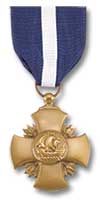
All comments and messages are approved by people and self promotional links or unacceptable comments are denied.
[Return to Top]
©2025 Salem-News.com. All opinions expressed in this article are those of the author and do not necessarily reflect those of Salem-News.com.